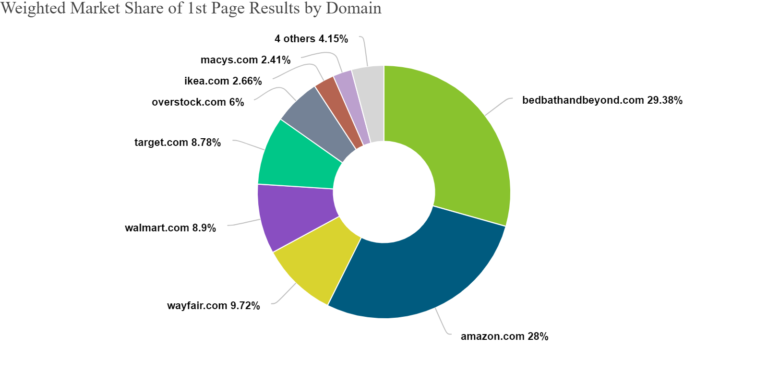An organic presence is essential to any business that wants to succeed in the new age of search.
Having this presence demonstrates a clear vision.
This vision includes deeply understanding your target market and a clear definition of your target audience so you can effectively approach and appeal to them.
Here we are going to explore the elements that make up an organic presence, how to grow and measure it, and the role that search engines play in your overall digital presence.
What Is a Digital Presence?
A company’s digital presence is their online footprint.
It’s what happens when a search is performed for your business or how you appear for business-relevant or related queries.
A digital presence can span multiple channels, devices, and platforms including:
- Owned domains (your websites).
- Social media profiles and presence.
- Business location listings.
- Directory listings and local citations.
- Digital ads.
- Online reviews.
In today’s digital climate it’s easier than ever to have a “presence.”
You can instantaneously launch a website, create a social profile, or purchase ad space on a search engine results page.
But growing, owning, and maintaining this presence is no simple feat.
Renting Versus Owning Your Search Presence

When it comes to search your digital presence can be owned or rented.
I have always loved making the analogy that SEO is like investing in a 401(k), while SEM is like day trading.
What I mean by this is that in organic search you can make an upfront investment, which will continue to grow and yield results over time.
However, in paid search, you will get an immediate return on your investment, but need to keep putting in more to maintain that same return.
Cut off your paid spend and your paid traffic goes away with it.
This analogy relates to the idea of owning versus renting your digital presence.
You can rent it by paying for the top ad positions, but this isn’t a long-term strategy for success.
As soon as you stop paying rent, you will be evicted from the SERP.
With SEO, you should define processes and build a program (like a down payment), and then maintain and refine it over time (like paying a mortgage).
The more effort you put in, the more equity you will own.
Organic Search & Your Digital Presence
When you make an investment in organic search, you should figure out how much real estate you actually own.
A brand’s organic presence is often referred to as their search engine market share or share of voice.
Search engine market share reflects the percentage of results a brand owns across search engine results pages for all business-relevant or critical keyword searches.
Being able to effectively measure your market share can help you discover important insights such as:
- How much space your content has earned on the first page of results compared to your competitors.
- New SEO competitors for your keywords that might not be your traditional business competitors.
- Backlinking opportunities from publishers and news outlets who rank well for a topic.

How to Measure Your Search Presence
There is not necessarily an industry standard when it comes to measuring your search engine market share.
How you measure or report on it should be determined by a number of factors including:
- Branded versus non-branded keywords.
- Universal results types versus standard organic rank.
- Seeing how you stack up against your known competitors or the SERP as a whole.
It is safe to say that for most established brands, you will show up above the fold on Page 1 for your branded terms without having to really roll up your SEO sleeves.
With regard to your non-branded terms, I recommend breaking down your market share into different topics or keyword groups you feel your brand should own or have a presence in.
This will also help to identify competitor content gaps where you have little to no visibility.
Search engine market share is a key metric for benchmarking your success against your organic competitors.
And when you look beyond just the numbers, valuable competitor insights are revealed which can be used to improve your marketing efforts.
Universal Results Types Shape Your SERP Appearance
Google introduced universal search in 2007 and with it came a new flock of search results in the shape of images, videos, maps, and beyond.
These universal result types take up prime real estate on the SERP as their ever-evolving appearance provides enhanced visibility and better ROI for the owners of these coveted positions.
Universal results make it so the SERP isn’t just a bunch of standard links, and as such you must account for that by:
- Staying on top of the latest developments.
- Incorporating them into your digital strategy.
- Taking advantage of the expanded opportunities available to reach your users.
The growing array of universal result types has also brought with them an increased volume and diversity of competitors to track, monitor, and report against.
The ability to navigate and harness them can really impact your ownership of the SERP and expand your brand’s organic reach.
Having a good understanding of the variety of results that exist, the intricacies of how to rank for them, and the competitive landscape will allow you to optimize for every inch of the SERP.
Evolving Past the Search Engine
Promoting the best possible content has been Google’s mission for a long time.
While at the same time, the “smarter” Google and other engines become, the more it means they’re keeping users from needing to access your content directly on your website.
An important part of owning your search presence is ultimately having a presence everywhere the SERP could possibly highlight or intentionally draw a user to through all these other means.
Never Stop Providing Value

A mistake some brands make is letting off the gas once they meet their organic KPIs, or feel they have a strong hold of their search engine market share.
To keep it simple, your organic presence is more than just an optimized website.
It is effectively being able to drive business to your site, blog, store, sign-up page, etc.
It’s using the tools you have available to make sure that your position on a search engine reflects your efforts in being the best choice to provide your users with the answers they’re looking for.
As part of promoting the best possible content, search engines continue to prop up websites that provide value to searchers’ needs.
Always approach your website and content strategy with the end-user in mind and you will find success.
How to Own Your Organic Presence
Don’t Leave Anyone Out
Map out customer/buyer personas and create content for them all.
This will allow you to own the whole funnel.
Always Put Your Customer First
Before you can make money or achieve your marketing goals, you have to create value for your customers.
Build everything with the customer in mind, and the customers will come.
Less Can Be More
Sometimes you should just stick to what you do because you do it well.
Don’t just sell or market, be a thought leader in your space.
More Resources:
- Why Every Marketing Mix Should Include Paid, Owned & Earned Content
- SEO Today: Going Beyond Google
- Enterprise SEO Guide: Strategies, Tools, & More
Image Credits
All screenshots taken by author, November 2020





